'Something has to give.' Canton Symphony wants to 'right this ship' for long-term survival
CANTON ? Rachel Hagemeier stood in front of a crowd of Canton Symphony Orchestra supporters delivering a dour, yet optimistic message.
The symphony must stop operating at a deficit and expand its base of donors while appealing to younger generations.
"The sky's not falling," assured Hagemeier, who took over as president and CEO in the fall of 2022. "We're not going to close our doors, but if we don't have this conversation ... in 10 years, we might be."
Hagemeier highlighted the orchestra's challenges in a special State of the Symphony presentation last month – considered the first of its kind – to supporters and donors, as well as to heads of other leading performing arts organizations in Stark County.
The bottom line is the 86-year-old symphony has seen a pattern of revenue falling short of expenses, including a significant drop in operating dollars from ArtsinStark, a Canton-based nonprofit advocate for the arts. Coupled with the death of longtime maestro Gerhardt Zimmermann this past summer and an aging fan base, the orchestra faces the challenge of remaining relevant and expanding its reach in a TikTok world.
"This is a trend nationwide," the 26-year-old symphony executive said. "Nationwide, operating (funds) are disappearing, (and it's) really hitting people hard; it's not just (the symphony), it's lots of organizations.
"My goal is that we figure out how to right this ship in the next five years, which is a really lofty goal," she added.
Local arts funding: ArtsinStark revamps grant program
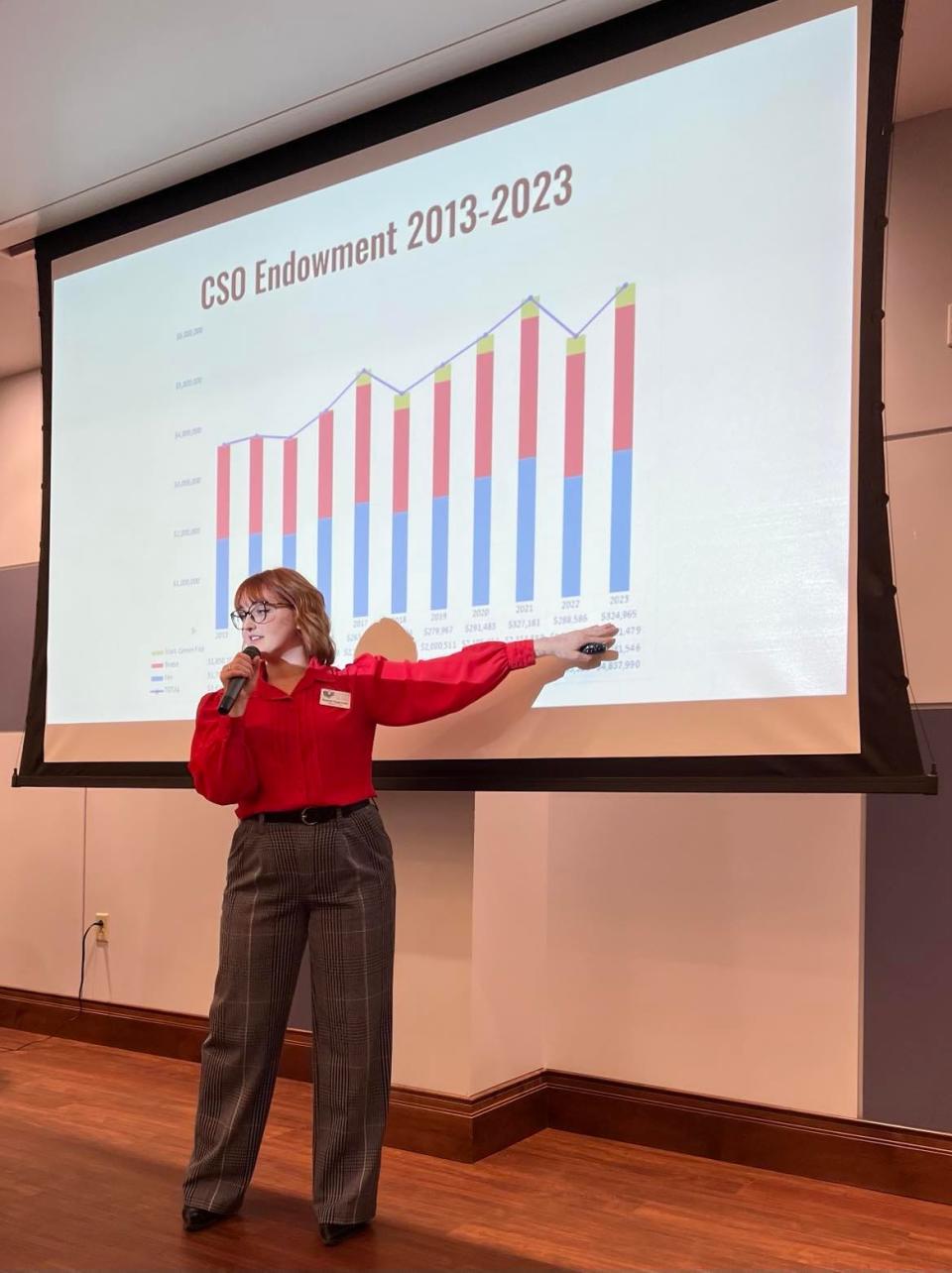
Financial woes also come at a time of uncertainty over where the local symphony will be based and perform in the future.
The $5.4 million Zimmermann Symphony Center opened in 2014, adjoining McKinley High School near the Pro Football Hall of Fame and on the campus of the Hall of Fame Village. The school also houses an updated Umstattd Hall, where the symphony performs.
But Canton City Schools last year announced plans to build a new high school in downtown Canton.
Although the project and the funding needed to make it happen appear to be years away, Hagemeier admitted the situation leaves the Canton Symphony Orchestra in "a little bit of limbo."
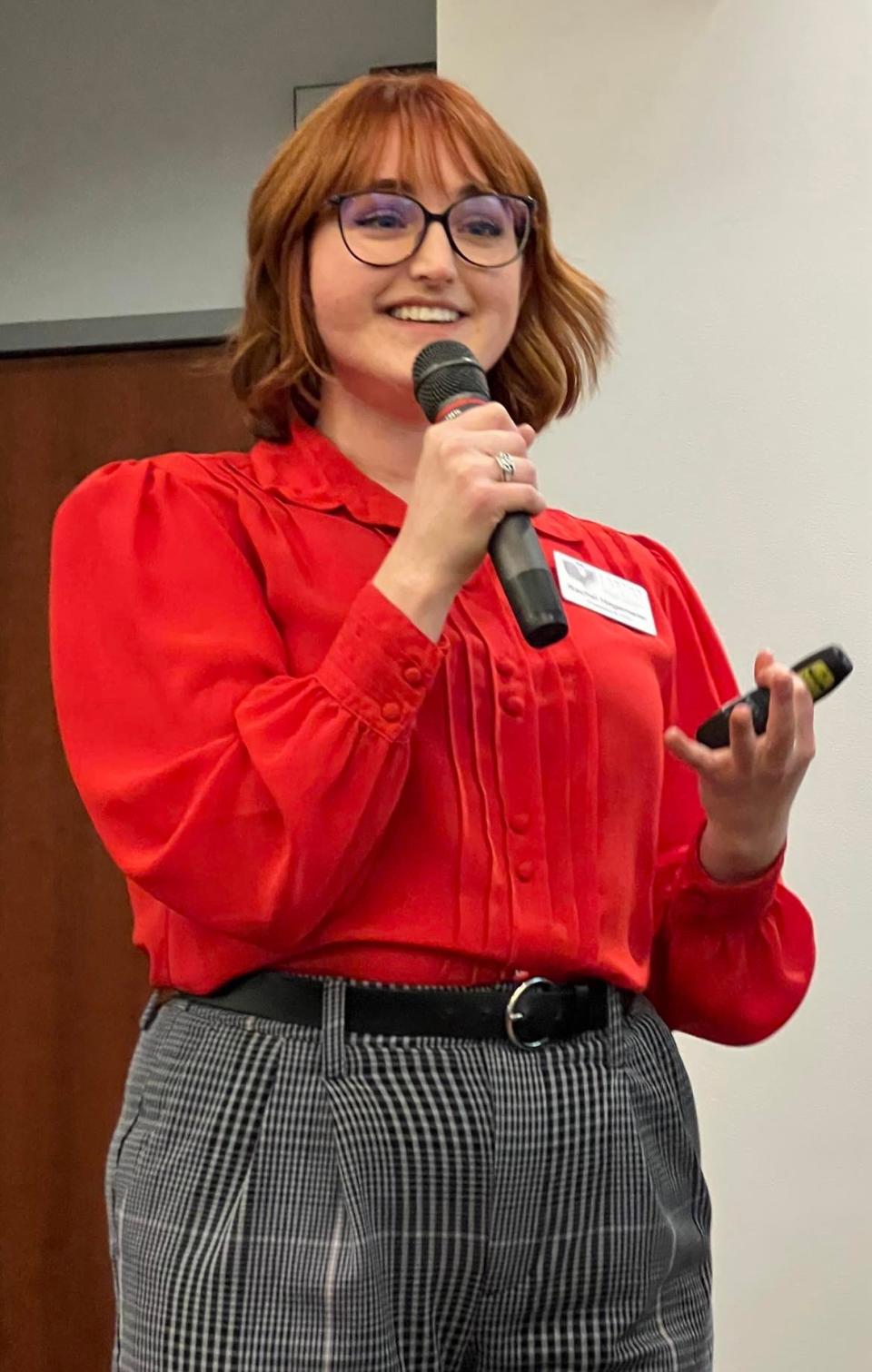
Symphony CEO doesn't want to use endowment as budget crutch
Regardless of its location, the symphony must reverse a 10-year financial trend to survive long-term and prosper. Revenue has been falling short of meeting expenses by about 20%.
The symphony projects a budget deficit of $317,000 for fiscal year 2024 and $346,000 for fiscal year 2025. Drawing from its endowment has helped the organization to balance its books in recent years.
The Canton Symphony Orchestra's endowment fund is an investment portfolio used for operating support, said Nathan Maslyk, the symphony's 27-year-old director of marketing and development.
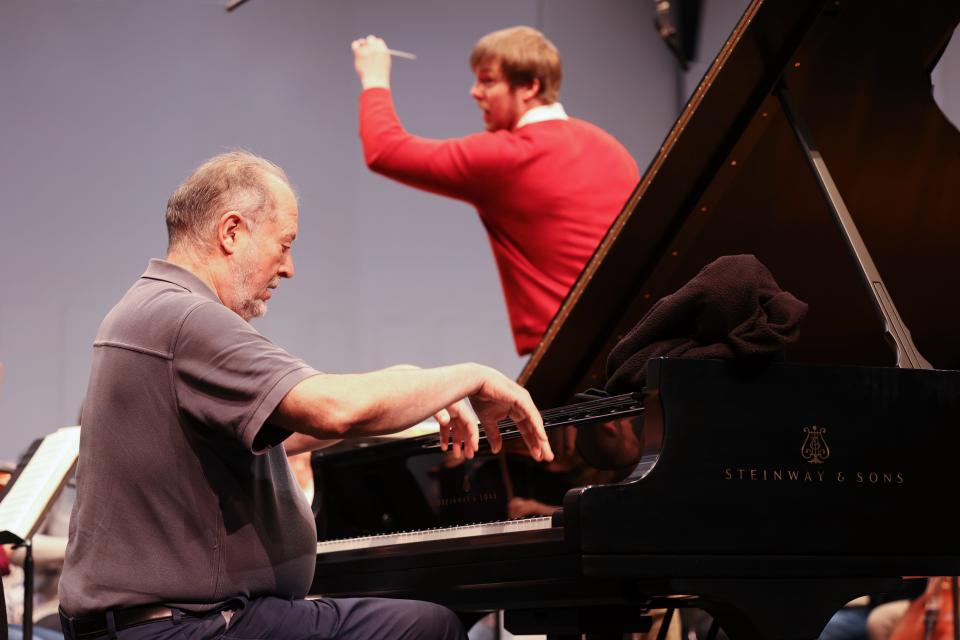
The endowment was $4.84 million in 2023, compared to $3.5 million in 2015 and $5 million in 2021.
"I'd like the endowment to be a security and not a crutch," Hagemeier said. "And that's what we're using it as right now is a security, but it's also being used heavily as a crutch."
However, "if we continue just being OK with operating in the red, we probably would be able to limp along for a real long time," she said in a recent phone interview. "We'd be able to make draws from the endowment, but that means the endowment is not going to grow."
In the meantime, symphony staff members are examining innovative and new ways to adjust the business model while continuing to operate efficiently, Hagemeier said.
"I can't cut my way out of this," she said of the symphony, which operates with six full-time and four part-time employees. Around 60 volunteers assist with concerts and events.
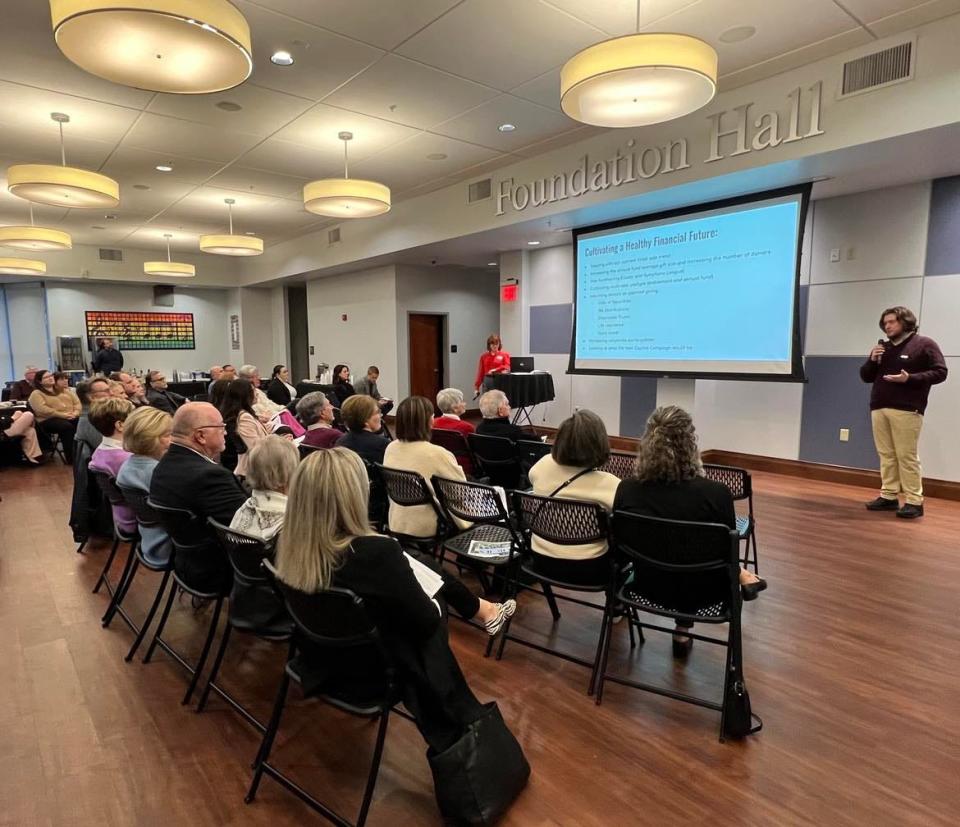
Losing Gerhardt Zimmermann was 'a huge culture shift for us.'
During her recent State of the Symphony address, Hagemeier's other key points included:
Expenses are increasing while revenue has remained the same for the orchestra. Inflation also has been problematic.
Hagemeier noted that 80% of the symphony's fundraising dollars come from 20% of its donors.
The death of the revered Zimmermann in June was a major loss. "Obviously, it is a huge culture shift for us as an organization," Maslyk said. "It's a huge PR and publicity shift for us as an organization because he was such a boisterous, confident, musically gifted genius of a man (who) was all sorts of wonderful things."
After shutting down concerts during the COVID-19 pandemic, the symphony's attendance has rebounded while selling out December's holiday pops concert for the first time since 2012.
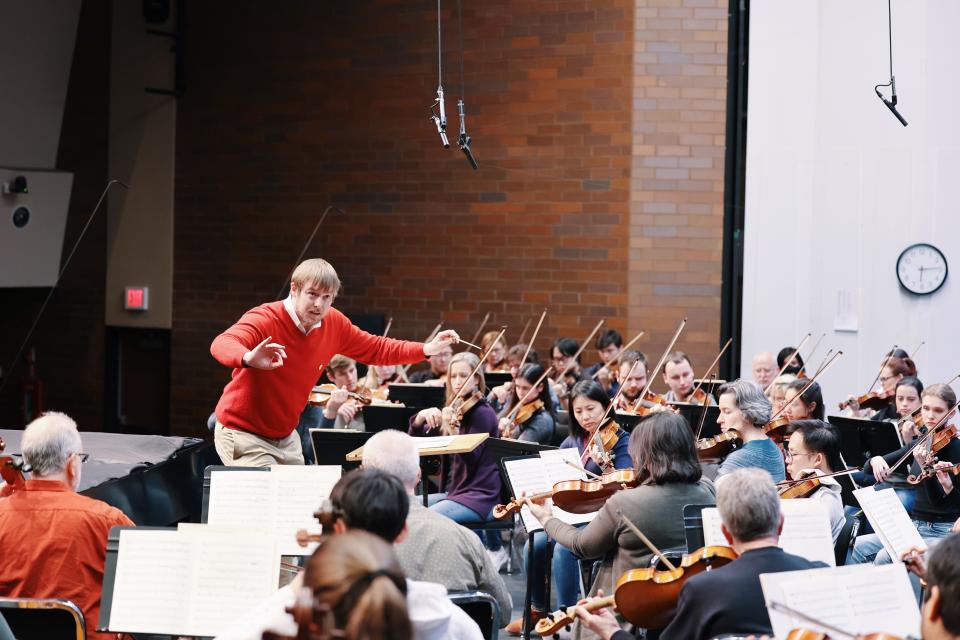
Simon Woods: 'All of the legacy art forms are facing change.'
Simon Woods, CEO and president of the New York City-based League of American Orchestras, said he's reluctant to say the challenges posed in Canton are universal to all symphonies in the country.
However, "let's just say the issues that the Canton Symphony Orchestra is experiencing are definitely very consistent with the conditions we're seeing in the field," he said. "It's about the changing demographics."
"All of the legacy art forms ... are facing change," Woods said.
Attendance at classical music concerts is partly being challenged by the availability of home entertainment through streaming platforms such as Netflix, Woods noted.
"So I think virtually every orchestra is thinking, 'How do we adapt our art form to the environment we're in now (and) adapt it to the coming generation (and an increasingly diverse American population)?'" he said.
Philanthropic patterns also are adverse for many orchestras nationally, Woods observed.
There are about 2,000 professional, community and youth orchestras in all 50 states, according to the group. Along with full-time, larger orchestras, such as Canton, Akron, Cleveland, Cincinnati and Columbus, there are many smaller ones in cities such as Alliance, Mansfield and Wooster.
Annual budgets range from less than $30,000 to more than $100 million, according to the League of American Orchestras.
The value of classical music
Symphony supporters and attendees skew older in age, Hagemeier said, noting that some longtime donors have died or "aged out."
So it's critical to appeal to younger people, she said, including to purchase annual subscriptions (the symphony equivalent of season tickets).
Carolyn Burley, 88, of Canton is among the most steadfast supporters of the Canton symphony.
"I enjoy classical music, and I'm glad that there is a symphony locally that I can go to because I couldn't get up to Cleveland to go to the Cleveland Symphony," she said. "I can't even go to the Akron Symphony because I'm blind (and can't drive), so having something locally is very important to me."
Hip-hop classical fusion: Je?an P the MC to perform with Canton Symphony
When she was in high school, Burley listened to Metropolitan Opera broadcasts on the radio on Saturday afternoons. But she believes younger people today don't give classical music enough of a chance.
"I would like to know how to reach out to younger people because a lot of people don't like classical music because they think they don't like classical music," Burley said. "And they haven't heard a lot of classical music, and they think it's too highbrow for them."
M.J. Albacete, who has listened to classical music since his high school days in the '50s, said it would be a "very tragic day" if the local symphony ever ceased, "and I think we are working very hard to not let that happen."
"One of the key signs of the success of the culture (of a community) is to be found in the fact that they have and support a symphony orchestra," said Albacete, the retired executive director of the Canton Museum of Art. "That doesn't mean that everybody in the community is crazy about it, (but) it means they have to recognize it's important, it's a hallmark."
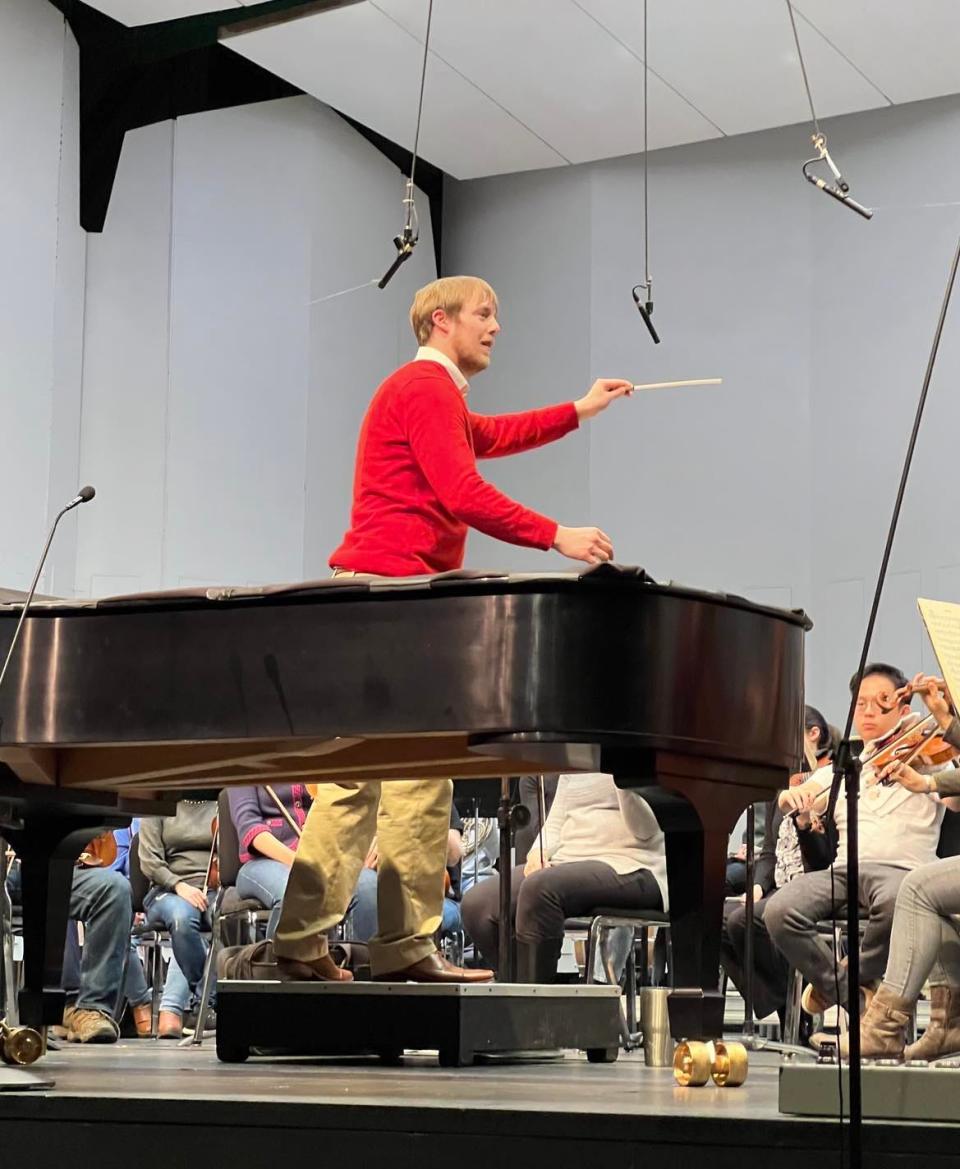
There are reasons for optimism
There are also reasons to be upbeat about the symphony's outlook, Hagemeier said during the February address.
For the first time since 2015-16, subscriptions have grown for the 2023-24 season. Subscriptions include a $75 economy package, which features all seven MasterWorks concerts. Counting pops concerts, subscriptions range from $130 to $350 per season, depending on seating.
Pops concerts continue to be popular. The Fleetwood Mac tribute show on Saturday is expected to draw a large crowd with a chance to be the symphony's highest-grossing concert ever.
Maslyk said the symphony is also seeking smaller donations on a more consistent basis while having success using the online fundraising platform Classy.
Newer fundraisers have been successful, including sellouts with Bourbon & Blues and Songs in the Sky, which netted $17,000 last summer. Both shows "were brainchilds of needing to rethink fundraising events," Maslyk said.

"We need to diversify," Hagemeier said of the symphony's offerings.
MasterWorks classical music concerts, however, are still the symphony's bread and butter, although they operate at a loss and cost about $60,000 to produce individually.
"Unless you charge $200 a ticket, you're not going to see a profit," Hagemeier said. "And we're not going to do that."
Newer approaches include podcasts, hip-hop and classical music fusion shows, summer concerts in the parks, and featuring popular regional bands like The Vindys in pops concerts.
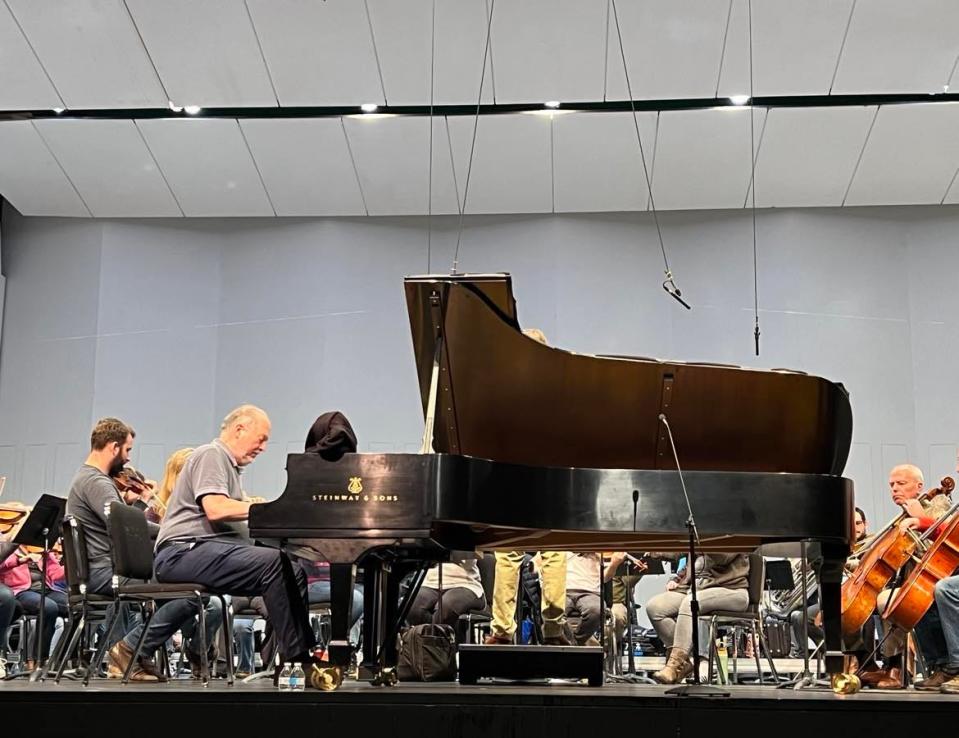
Woods said it sounds like the Canton symphony is "doing all the right stuff."
"It's all the right direction," he added. "It's basically thinking about how to make the concert-going experience more welcoming, more accessible and more informal to people who may be unfamiliar with the traditions of orchestral concerts.
"I think there's a lot of experimentation going on right now," Woods said. "And in order to find solutions, you've got to take risks."
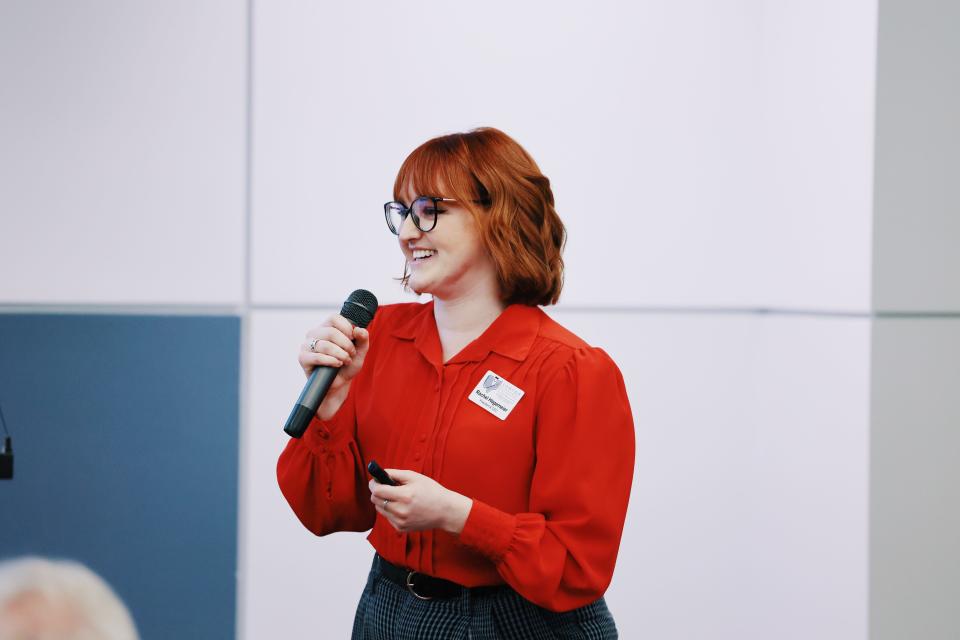
'We should never lose sight of the fundamentals.'
Even so, symphonies can't forget their core missions, Woods said.
"We should never lose sight of the fundamentals and the fact that the art form that we have, the experience of sitting in a room with (scores of classically-trained musicians) ... is still one of the most beautiful experiences that the arts can offer," he said.
Asked if he fears the demise of symphonies in small, mid-sized and large cities, Woods said: "I definitely hope that that doesn't happen, and I don't believe that will happen because one thing we know about orchestras is they're incredibly resilient."
Elite instrumentalist: From Beyoncé to Bach to Kurt Cobain, cellist brings love of all music to Canton Symphony
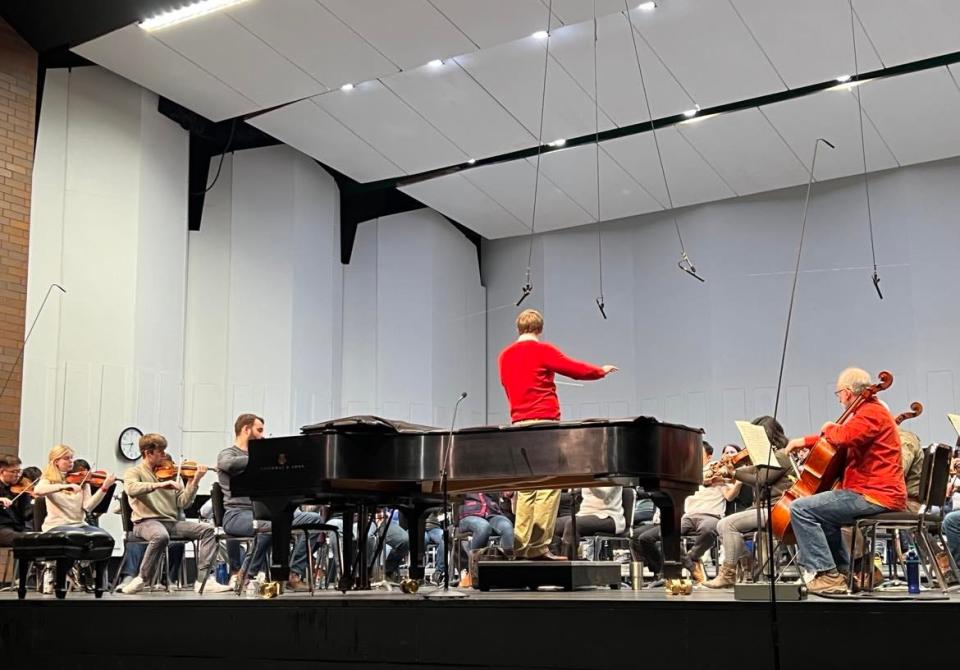
'Something has to give.'
Collaborating was another point covered in Hagemeier's presentation.
"There's so much that we can do together," she said of the local arts community. "It's really important that we're all working together to (succeed and grow)."
Joy Raub, executive director of the Canton Ballet, said the symphony's challenges are similar to those faced by the ballet and other arts organizations.
"It opened a dialogue that illuminated the importance of our community working together to ensure the continued vitality of Stark County’s arts landscape," Raub said of the State of the Symphony address. "Canton Ballet looks forward to participating in these conversations in the future and exploring collaborative opportunities."
Community support is also vital to the symphony, including corporate donors, an area targeted for growth, Hagemeier said.
"We want to let people know that there are different ways to give," she said. "We also want to think about long-term giving, (including) multi-year pledges (for both the endowment and annual fund) ... so people think about us in the long term."
Ways to support the symphony also include established giving accounts; appreciated investments, including stocks, bonds and certificates of deposit; IRA distributions; and employer matching gifts.
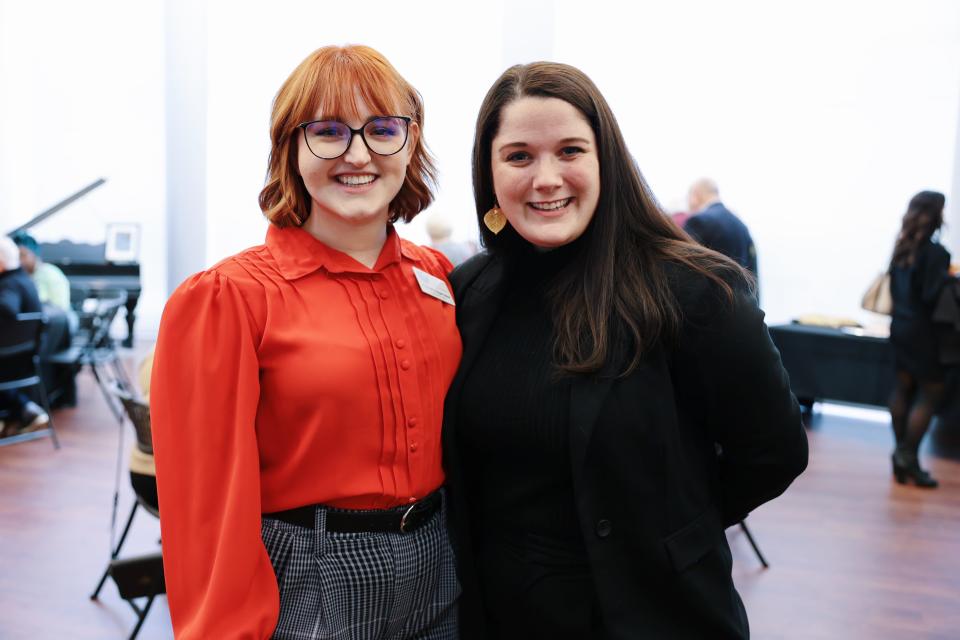
To learn more about ways to donate, go to cantonsymphony.org/support or call 330-452-3434.
Continuing the symphony's proud legacy is paramount, Maslyk and Hagemeier said.
"Something has to give," Maslyk said. "And it's not going to be our endowment. Not on our watch. (We) just want to let people know where our heart is, and our heart is in getting this organization in a place where it can succeed long after us being there."
Reach Ed at 330-580-8315 and [email protected]
On X (formerly Twitter) @ebalintREP and Instagram at ed_balint
History of the Canton Symphony Orchestra
1938: The Canton Symphony Orchestra Association is incorporated, featuring 70 musicians. A free concert takes place in the city auditorium before a crowd of 3,300. Season tickets cost $2 and $4.
1947: The symphony plays its first outdoor concert at Meyers Lake to a capacity crowd of 2,000.
1961: Canton Youth Symphony is founded.
1970: The Cultural Center for the Arts is constructed in downtown Canton, housing the symphony orchestra's administrative staff.
1974: Canton Symphony is recognized as a metropolitan orchestra instead of a community orchestra.
1976: As part of the country's bicentennial celebration, the first concert at the park takes place at the McKinley Monument on June 29. The event becomes annual Fourth of July tradition.
1980: Gerhardt Zimmermann succeeds Thomas Michalak as the orchestra's conductor.
1997: American-Canadian violinist Leila Josefowicz opened the symphony's 61st season performing Hovhaness’ Mysterious Mountain, Symphony No. 2. Josefowicz had toured Japan and was featured on the Tonight Show Starring Johnny Carson.
2005: On Oct. 5, PBS Channels 45 and 49 show a screening of the symphony's 70th anniversary and Gerhardt Zimmerman’s 25th year as music director: “A Canton Symphony Orchestra Celebration.”
2014: In May, the Zimmermann Symphony Center opens, and for the first time, the symphony orchestra can house all of its workers, musicians and staff at one location. Additionally, McKinley High School’s auditorium was refurbished with new seats, carpeting, lighting and a hearing loop.
2018: Divergent Sounds is founded, where "Classical meets the Unexpected." Members of the symphony perform with some of the region’s most popular independent musical artists, including pop, rock and hip-hop.
2021: The Orchestrating Change podcast series is founded.
2022: In October, Rachel Hagemeier becomes the new president and CEO of the Canton Symphony Orchestra.
2023: In June, conductor Gerhardt Zimmermann dies at age 77 following declining health.
2023: In April, the symphony marks its first full MasterWorks Season since the COVID-19 lockdown.
SOURCE: Canton Symphony Orchestra
This article originally appeared on The Repository: Canton Symphony faces financial woes, loss of Gerhardt Zimmermann
